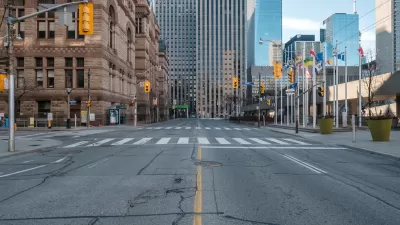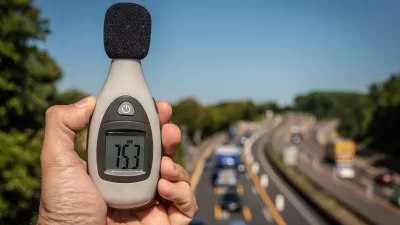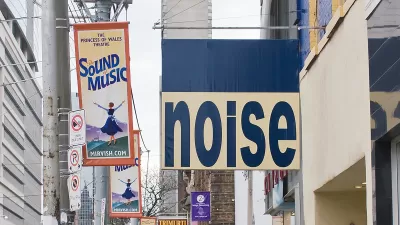In response to a spike in complaints from people living near bars and clubs, Houston has updated its noise ordinance to raise fines and require additional permits for amplified sound.

Recent updates to Houston’s noise ordinance seek to curb complaints from neighbors of bars and clubs, which rose sharply this year, up 44 percent between January and March of 2022. As Dylan McGuinness reports in the Houston Chronicle, the updated ordinance doubles the fine for noise violations and adds new permitting rules for amplified sound.
“The rules, passed by City Council in May, marked a compromise city officials said was necessary to balance competing interests: a boisterous nightlife scene and residents fed up with late-night music piping into their nearby homes,” McGuinness writes.
According to the article, “The measurement for those noise volumes would be taken from the property of any resident who calls police, under the ordinance. Officers would have to take a decibel reading with a certified sound meter to cite a business.”
Noise pollution is increasingly being recognized as a significant detriment to public health, and other cities, such as Paris and New York, are experimenting with automated enforcement using cameras and decibel meters to measure noise and identify violators.
FULL STORY: New nighttime noise rules take effect in Houston, doubling fine for rowdy bars

Manufactured Crisis: Losing the Nation’s Largest Source of Unsubsidized Affordable Housing
Manufactured housing communities have long been an affordable housing option for millions of people living in the U.S., but that affordability is disappearing rapidly. How did we get here?

Americans May Be Stuck — But Why?
Americans are moving a lot less than they once did, and that is a problem. While Yoni Applebaum, in his highly-publicized article Stuck, gets the reasons badly wrong, it's still important to ask: why are we moving so much less than before?

Using Old Oil and Gas Wells for Green Energy Storage
Penn State researchers have found that repurposing abandoned oil and gas wells for geothermal-assisted compressed-air energy storage can boost efficiency, reduce environmental risks, and support clean energy and job transitions.

Poorest NYC Neighborhoods Pay Price for Delivery Boom
The rise of ‘last-mile’ e-commerce warehouses — and their attendant truck traffic and air pollution — is disproportionately impacting the most historically disadvantaged parts of the city.

Greening Oakland’s School Grounds
With help from community partners like the Trust for Public Land, Oakland Unified School District is turning barren, asphalt-covered schoolyards into vibrant, green spaces that support outdoor learning, play, and student well-being.

California Governor Suspends CEQA Reviews for Utilities in Fire Areas
Utility restoration efforts in areas affected by the January wildfires in Los Angeles will be exempt from environmental regulations to speed up the rebuilding of essential infrastructure.
Urban Design for Planners 1: Software Tools
This six-course series explores essential urban design concepts using open source software and equips planners with the tools they need to participate fully in the urban design process.
Planning for Universal Design
Learn the tools for implementing Universal Design in planning regulations.
Heyer Gruel & Associates PA
City of Moreno Valley
Institute for Housing and Urban Development Studies (IHS)
City of Grandview
Harvard GSD Executive Education
Salt Lake City
NYU Wagner Graduate School of Public Service
City of Cambridge, Maryland





























